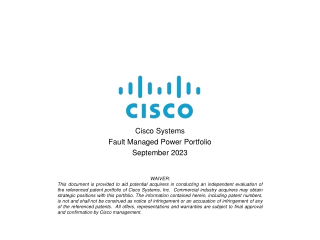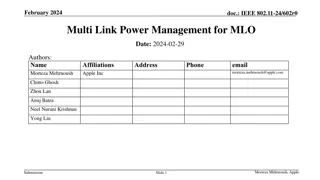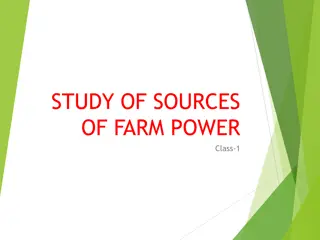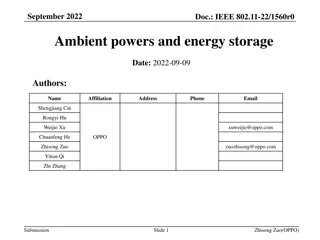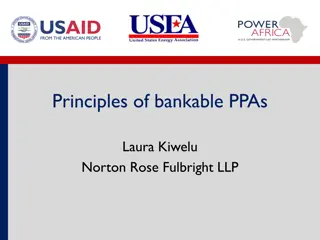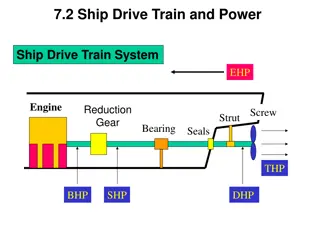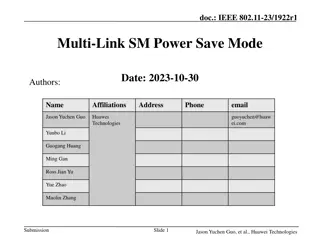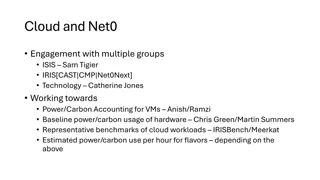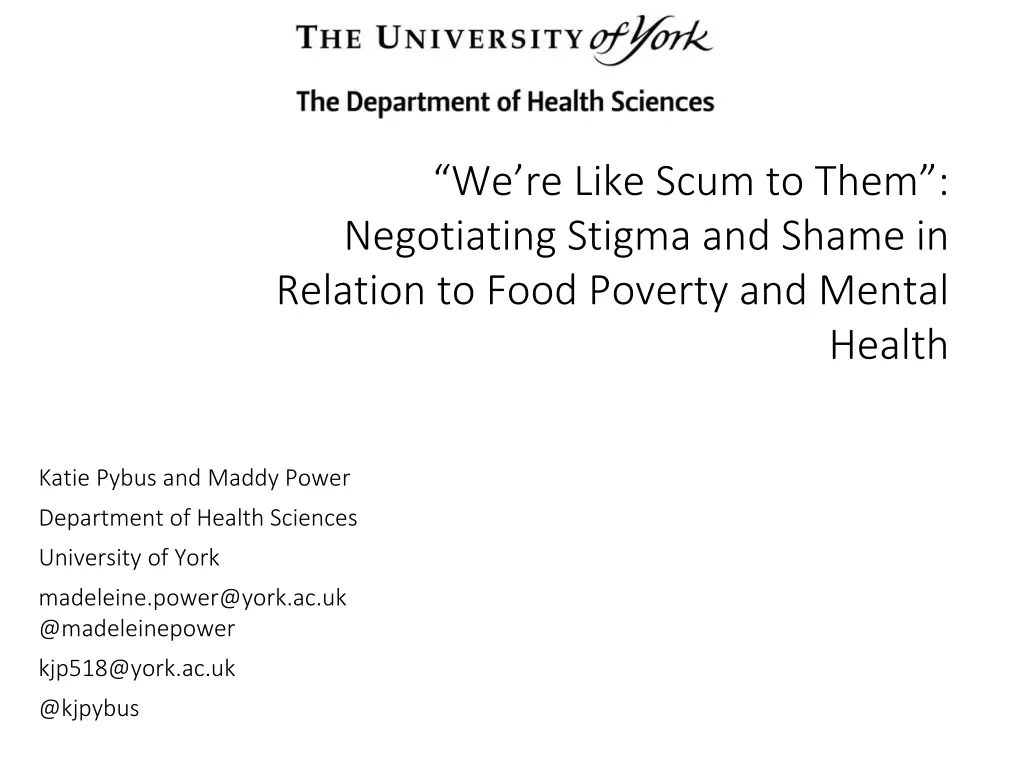
Negotiating Stigma and Shame in Food Poverty and Mental Health
Explore the challenges faced by individuals like Jade and Sarah in dealing with food poverty and mental health issues. Discover how stigma and shame impact their daily lives, highlighting the need for support and understanding in these critical areas.
Download Presentation

Please find below an Image/Link to download the presentation.
The content on the website is provided AS IS for your information and personal use only. It may not be sold, licensed, or shared on other websites without obtaining consent from the author. If you encounter any issues during the download, it is possible that the publisher has removed the file from their server.
You are allowed to download the files provided on this website for personal or commercial use, subject to the condition that they are used lawfully. All files are the property of their respective owners.
The content on the website is provided AS IS for your information and personal use only. It may not be sold, licensed, or shared on other websites without obtaining consent from the author.
E N D
Presentation Transcript
Were Like Scum to Them: Negotiating Stigma and Shame in Relation to Food Poverty and Mental Health Katie Pybus and Maddy Power Department of Health Sciences University of York madeleine.power@york.ac.uk @madeleinepower kjp518@york.ac.uk @kjpybus
Session Outline Case studies Group discussion Identifying solutions
(Graham, 1984, Charles and Kerr, 1988, Graham, 1993, Caplan, 1997, Dowler et al., 2001, Goode, 2012, Young-Women's-Trust, 2017) Food Poverty Case Study Jade is 38. She lives with her partner in Bradford. She has eight children, aged from 12 years to 11 weeks. Jade and her partner live with their children in a house rented from the Council. Her partner is employed on a zero hours contract but most of their income is from benefits. Jade s household income is too low to access the fresh food she would like to buy; she buys cheap, but substantial, food to ensure her children are fed. Jade has been sanctioned a number of times. Jade regularly uses the food bank but describes it as a last resort , only used when support from friends is unavailable.
Jade I didn t pay mine (water bills) for a year but now it is coming out of my benefits. You get reductions off your benefits, which means you are lower. *** Jade: If they sanction you, they take away your money. Researcher: And what do you do in that period? Jade: You ve got to survive on your Child Benefit. Researcher: Only that? Jade: Yeah, if it is only Child Benefit you get, it is only Child Benefit for the week. *** Jade: You get your voucher and you wait for the taxi to go home and they ask you to move. They say, Can you move now please? But as soon as people turned up with donations they were all pally, pally, pally. Researcher: Why? Jade: Because we are not giving food, we re taking food from them. We re like scum to them, but when people bring food, they re happy.
Mental Health Case Study Sarah is 56 years old and lives alone. Sarah has worked throughout her adult life and experiences a number of physical health difficulties along with anxiety and depression. Five years ago Sarah s health deteriorated further, meaning that she had to give up work and access income benefits for the first time. After attending a medical assessment, Sarah was initially found fit for work. She successfully appealed this decision and her benefits were reinstated but describes having a total mental breakdown during the process, necessitating the need for referral to mental health support services. Sarah is currently in the Employment Support Allowance support group and is now also in receipt of Personal Independence Payments.
Sarah You finish up, you re scared of who s coming to knock at your door to try and receive money from you that you haven t got .It s traumatic to somebody like me who can t pay their way in society you know, especially when you ve worked all your life. *** Researcher: (discussing back to work scheme) So did you find it helpful meeting with that person then? Sarah: No, it destroyed me because I know I couldn t go back to work...it made me depressed even more...it makes you feel worthless. If I could go to work I wouldn t have been sat in front of that man, I would have been working I wouldn t have relied on him to get me a job. *** I m being attacked by the Government and they re attacking me because of my disabilities, they want to take my money away from me because they believe I m not entitled to it. *** I ve already worked and I ve paid into the system all my life. Now I m depending on it, doesn t mean they re giving me anything.
Questions for discussion What does stigma mean in this context? 1. Why might people feel stigmatised during their interactions with services? 2. What is the emotional impact of stigma on the person? 3. What could you do in your role to counteract stigma? 4.

